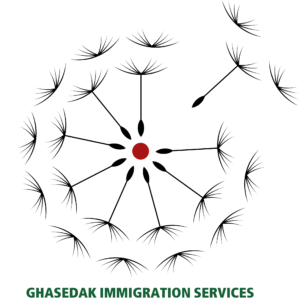Canadian Experience Class (CEC) – Express Entry Canada

The Canadian Experience Class (CEC) is one of the most popular immigration pathways under Canada’s Express Entry system. It is designed for skilled workers who have gained valuable work experience in Canada and now wish to become permanent residents. This program offers a streamlined process for those already contributing to the Canadian workforce, including international graduates and temporary foreign workers. Below, you’ll find a detailed breakdown of eligibility, requirements, and how to apply through CEC.
Table of Contents – Canadian Experience Class (CEC)
Work Experience Requirements for Canadian Experience Class (CEC)
- Your experience must be in NOC TEER 0, 1, 2, or 3 categories.
- It must be paid work—volunteer work or unpaid internships do not count.
- You must have worked in Canada while authorized to do so (e.g., on a valid work permit).
- Remote work counts only if you were physically in Canada and employed by a Canadian employer. Work for foreign employers, even while in Canada, does not qualify.
- You must have performed the lead statement and most of the main duties listed in the NOC description.
- Minimum 1 year of skilled work in the 3 years before you apply (1,560 hours total).
Update – March 25, 2025: As of this date, candidates in all Express Entry programs, including CEC, no longer receive additional CRS points for valid job offers supported by a Labour Market Impact Assessment (LMIA). Job offers may still support eligibility in some cases, but they do not add 50 or 200 points to your score under the Comprehensive Ranking System (CRS).
How to Count Your Work Hours
- Full-time: 30 hours/week for 12 months = 1,560 hours
- Part-time: 15 hours/week for 24 months = 1,560 hours
- Multiple jobs: You can combine jobs to meet the hours
Note: Work hours must be for authorized paid work in Canada only.
Note: You cannot count more than 30 hours/week toward the total, even if you worked more hours,” per IRCC’s rule capping weekly hours at 30 for CEC eligibility.
Language Requirements for the Canadian Experience Class (CEC)
-
To be eligible for the Canadian Experience Class, you must prove your language ability using an approved test. These include IELTS or CELPIP for English, and TEF or TCF for French. The test results must be less than 2 years old at the time of application.
-
For TEER 0 or 1 jobs, a minimum CLB 7 is required.
-
For TEER 2 or 3 jobs, you need at least CLB 5.
💡 Meeting the right language requirement is crucial when applying under the Canadian Experience Class stream of Express Entry.
-
- Scores must be valid (less than 2 years old at time of application)
Education
There is no education requirement to be eligible for the Canadian Experience Class. However, you can increase your CRS score if you:
- Have a certificate, diploma, or degree from a Canadian high school or post-secondary institution
- Have a foreign credential and an Educational Credential Assessment (ECA)
Note: An ECA must be from an IRCC-designated organization (e.g., WES) and less than 5 years old when you apply.”
Admissibility
To be eligible for the Canadian Experience Class, you must be admissible to Canada. Reasons for inadmissibility include criminal history, medical conditions, or security risks.
Note: You’ll need police certificates and a medical exam after receiving an ITA to prove admissibility
Where You Can Live
Canadian Experience Class applicants must plan to live outside the province of Quebec. Quebec has its own immigration programs.
When creating your Express Entry profile, you can indicate where you plan to live—but you’re not restricted to that location after you become a permanent resident.
For International Students
- Graduate from a Canadian Designated Learning Institution (DLI).
- Apply for a Post-Graduation Work Permit (PGWP).
- Gain at least 1,560 hours of skilled work in TEER 0, 1, 2, or 3.
- Meet the required CLB level (CLB 7 or CLB 5 depending on your job type).
- Create an Express Entry profile and apply for PR when invited.
Note: PGWP work must be full-time or equivalent part-time after graduation; co-op or student work doesn’t count.
For Temporary Foreign Workers
- Get a valid work permit and begin skilled employment in Canada.
- Complete at least 1 year (1,560 hours) of full-time work in TEER 0, 1, 2, or 3.
- Take an approved language test and meet the CLB minimum.
- Submit your Express Entry profile and receive an Invitation to Apply (ITA).
Frequently Asked Questions – Canadian Experience Class (CEC)
Last updated: 2025-04-08
